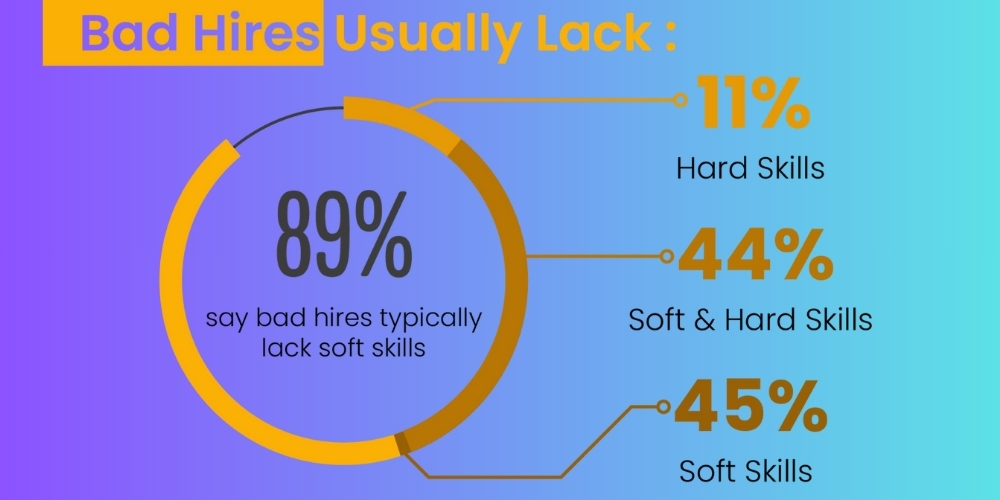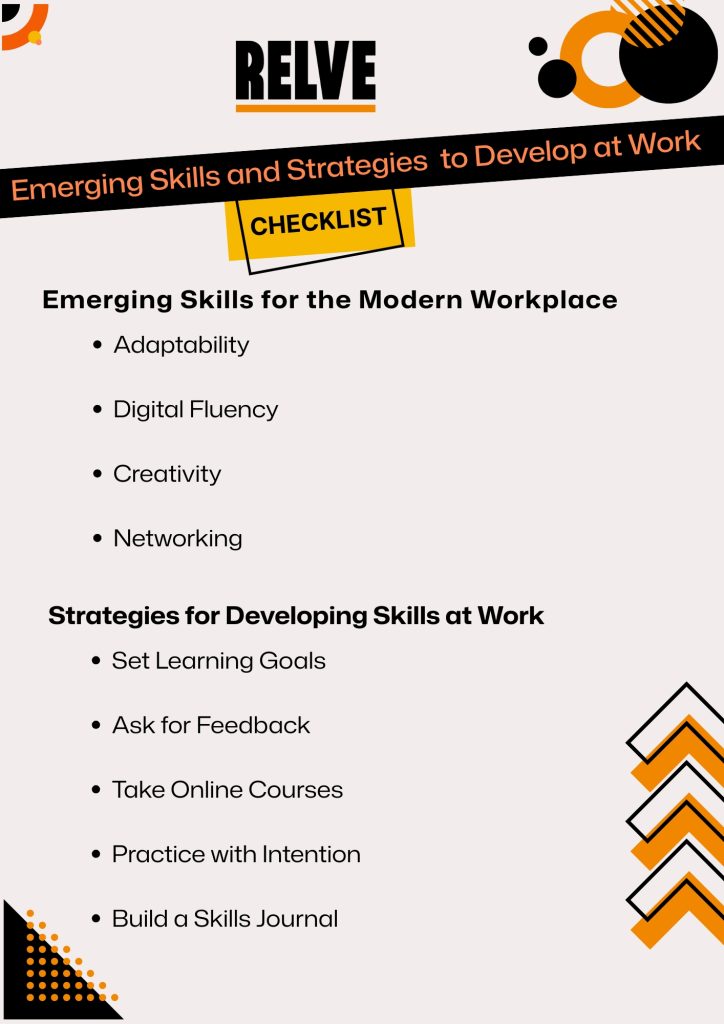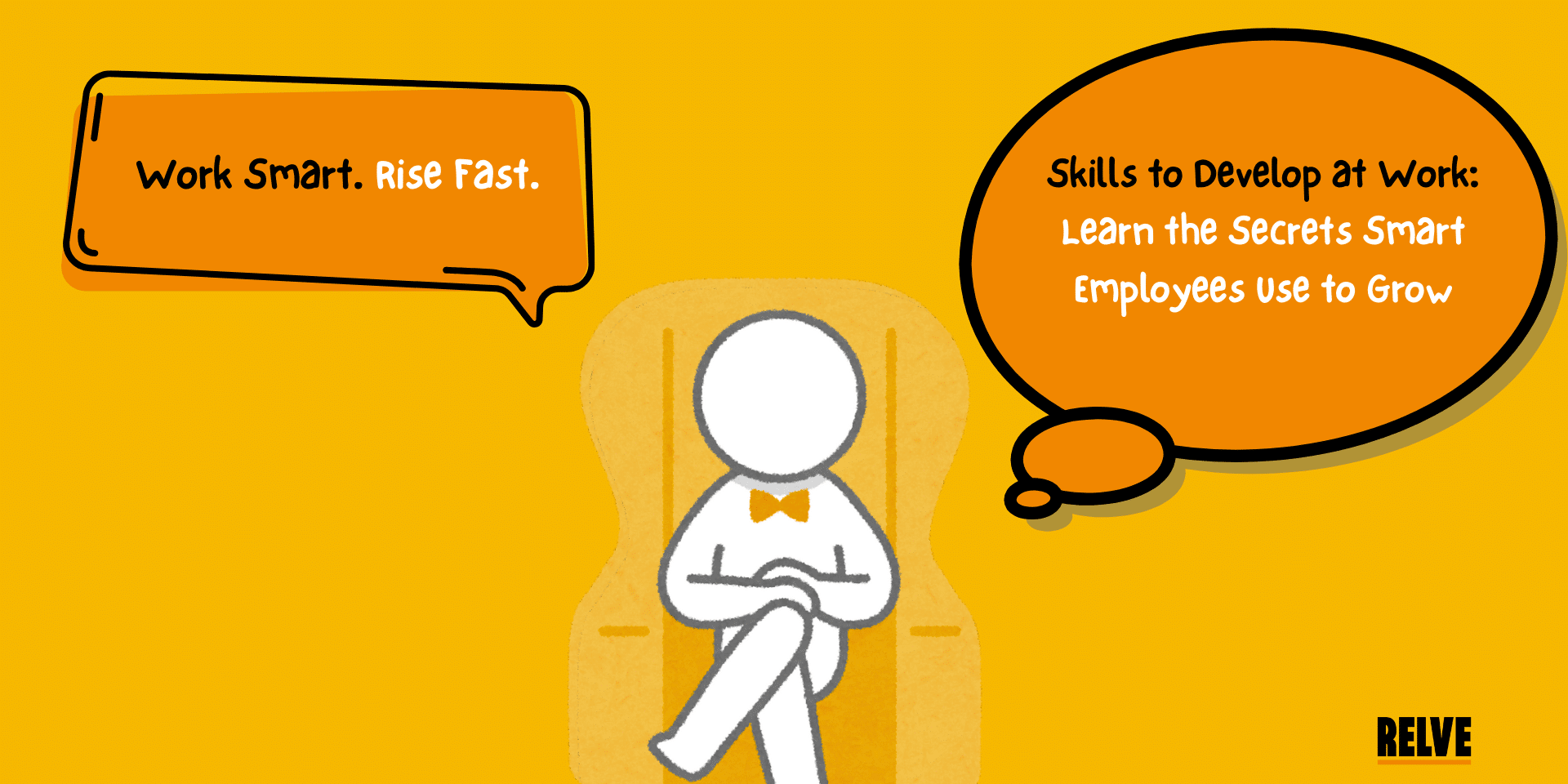You’re sipping your coffee, half-listening in a team meeting, when the new hire starts speaking. They’re confident, clear, and somehow already leading a project in week two. You glance at your blank notes or Google Docs and realize they’ve got something you don’t. It’s not magic. It’s mastering the skills to develop at work that actually matters. While most employees are just trying to survive the 9 to 5, others are silently upgrading like it’s a video game.
In this blog, you’ll learn exactly what skills to develop at work, why they make you stand out, and how to build them without reading 47 self-help books. Whether you want to lead better meetings, solve problems faster, or just stop freezing when someone says “quick update,” this guide is for you.

Understanding Workplace Skills
Workplace skills are like invisible superpowers. You won’t find them in your job title, but they decide if people trust you, follow you or loop you into the big decisions.
There are two types of skills you need to grow: soft skills (aka people smarts) and hard skills (aka tool smarts). Soft skills help you communicate, lead, and adapt. Hard skills help you execute tasks using tech, tools, or systems.

Essential Soft Skills to Develop at Work
1. Communication Skills
You could have a Nobel-worthy idea. But if you mumble it during a team call like a shy robot, guess what? It’s going nowhere.
Try presenting once a month. Or summarize meetings to develop your communication skills.
2. Leadership Skills
You don’t need a manager title to lead. Leadership is about making others better when they’re around you.
How do you develop leadership skills at work?
Volunteer for tough projects. Help others solve problems. Speak up with ideas. Be the person others trust to get things done.
According to Harvard DCE, leadership and social influence rank among the top ten skills that need to be developed at work.
3. Problem-Solving Skills
Every job has problems. People who fix them fast get promoted faster.
Try new approaches. Break problems into chunks. And please, use logic, not office gossip, to make decisions. Want bonus points? Sharpen your decision-making skills by reading case studies in your industry.
4. Interpersonal Skills
Ever met someone who just knows how to talk to anyone? That’s not magic. That’s emotional intelligence.
These habits make you easier to work with and harder to ignore. Once you do that, you’ll also become better at conflict resolution skills, which saves everyone from HR meetings.
Emerging Skills for the Modern Workplace
Let’s not sugarcoat it. AI is replacing tasks faster than you can say “automation.” The only way to stay relevant? Build new skills to develop at work that machines can’t replicate.
1. Adaptability
The company changes direction. Again. Adapt or be left behind.
Learn to shift gears, stay cool under pressure, and embrace ambiguity. Uncertainty is your new best friend.
2. Digital Fluency
Almost 92% of job opportunities need digital skills, while a third of the workforce possesses either minimal or no digital skills because of longstanding underinvestment.
You don’t have to become a coder. You should become proficient with your tools. Learn shortcuts, automate simple tasks, and explore new applications.
3. Creativity
Creativity skills help you solve problems differently, bring fresh ideas, and innovate at any level.
Try brainstorming. Doodle ideas. Learn from different industries. It’s not about being “artsy.” It’s about being useful in surprising ways.
4. Networking
Learn how to develop networking skills at work by building authentic relationships.
Start with your team. Help others. Show up to events. Comment on colleagues’ wins. Send helpful articles. Boom. You’re networking.

Strategies for Developing Skills at Work
Now for the how. You’ve got the list. Time to level up.
Set Learning Goals
Write down 2–3 skills to be developed at work this quarter. Be specific. “Improve communication” is vague. Try “Lead one team meeting this month.”
Ask for Feedback
Want to know how to develop your skills at work fast? Ask your manager, “What’s one thing I can improve?” Then listen carefully and implement. You’ll learn a lot.
Take Online Courses
CXL. Coursera. YouTube. Free or paid. There’s no excuse. Pick one course a month and stick to it.
Practice with Intention
Use your current job as a playground. Apply what you learn immediately. Turn boring tasks into skill-building reps.
Build a Skills Journal
Each week, write down what skill you used and what you learned. In 3 months, you’ll see progress. And have talking points for your next promotion.
Conclusion
Success at work isn’t about being the loudest in the room or the busiest on Slack. It’s about learning, evolving, and becoming just a little better than you were yesterday.
Whether you’re sharpening how you speak, lead, solve problems, or handle change, every small step adds up. You don’t need a fancy title or a manager’s approval to grow. You just need the willingness to try.
Pick one skill. Practice it. Repeat. That’s how real progress begins.
